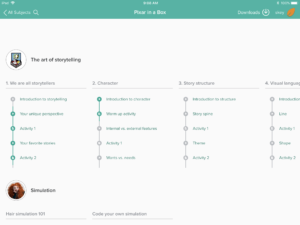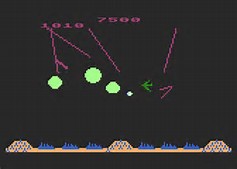I frequently receive calls from law students or lawyers looking to become appellate lawyers. And I find myself having lunch with people and discussing how I started out. What I am writing here is what I typically say on those calls or at those lunches.
I have a background that suited me for appellate practice. Though, at the time, I had no idea that I was preparing myself for appellate practice. I came to college wanting to be a lawyer. Only, as I excelled in college classes, I wanted to become a professor instead. I chose as my major the typical cookie cutter pre-law route of political science. But political science ultimately became a minor. And I double-majored in English and Religion. So, I changed my mind about law school and decided to attend a seminary (my aim was to go from the M.Div. to a Ph.D. program and ultimately become a religion professor). And as seminary neared its completion, I decided to go to law school, which is what I wanted to do when I started college in the first place.
I entered law school three years older than most 1Ls and with a depth of research and writing experience. It never occurred to me that I would do appellate law after law school. In fact, I never even did moot court. I was a mock trial guy. And I was fairly convinced that I would go on to be a criminal trial attorney. And why was that? I wanted to be in the courtroom, and I knew that criminal practice would place me there early and often.
During my 3L year, I came to work for a criminal defense attorney. And on the days I was with him, we’d go from court to court together. His paralegal would lay out his day’s agenda in a little printout atop some gray files. And off we’d go in his little Porsche. As we went from place to place, he’d smoke tiny cigars. Eventually, all of my clothes, papers, and even my apartment came to smell like those tiny cigars. After court, we’d end up at a bar where he and his investigator would down Gin and Tonics. It was like living in a Michael Connelly novel.
After I had been with him a few months, I took a file on a rape case he was defending and prepared it for trial. I spent an entire weekend calling every witness on the State’s witness list, conducting interviews and preparing summaries what their testimony would. I printed these out, and I put them in individual files. Along the way, I found out that the victim had not actually made an outcry to the person the State would call as its outcry witness. They called the victim at trial and she doubled down on her claim that she’s outcried to the person. And the lawyer I worked for spent about 25 minutes of cross-examination really committing her to that story. The outcry witness was then called and she said on the stand what she’d said in my interview. The victim had never made an outcry to her. The jury acquitted in about 15 minutes. What I learned from this was that criminal cases are often won by calling witnesses, listening to them, and preparing detailed reports more so than big television moments. Yes, I was a big part of a trial win, but my contribution to the case felt like a graduate school research project more so than it felt like something from an episode of Law and Order. It was pretty clear that the DA hadn’t interviewed any of the witnesses. She tried the case just from the discovery file. If you outwork your opponent, you will likely beat your opponent. And lawyers don’t really have the time to do what I did in the case. I learned that it is pretty easy to gain the edge in law.
Then something else happened. I learned that the lawyer was doing appellate cases. But he was farming out the appellate work to a former associate of his who had retired to the mountains. The lawyer was handwriting the appellate briefs and mailing them to my boss’s paralegal. And she was typing up the briefs. The writing was pretty terrible, and the lawyer I was working for wasn’t doing very well when it cases to appeals. Shortly afterward, while we were on a tour of Atlanta and as I was buzzed from cigarillo smoke yet again, I asked my boss if I could try my hand at an appellate brief before he sent it out to the mountain man. My boss agreed.
The brief I wrote was on behalf of a guy named Thomas Graham. As I read through the transcript, I noticed something missing. The prosecutor had failed to establish venue in the county where the case was being tried. Back in the early 2000s, there was an absolute loophole in the law. The prosecutor had to ask a witness, “In what county did these events take place?” Only, in this case, the State had failed to check that box. And Mr. Graham had been convicted of murder. I worked hard on that case and ultimately my brief won the day in the Supreme Court of Georgia. And I went on a little streak of wins. I would write these briefs, my boss would review and sign them, and they’d go off to the Court. And we’d win. The law office bought me a laptop of my own. And when I was hanging out in the courtroom with the lawyer, I’d work on cases off in some corner. This was the era just before WiFi was a thing. And I remember having all of the Georgia cases on a set of DVDs. But things got done. When I became tired of working in the office, I’d take the laptop and go someplace else to work. Appellate practice, I was learning, was portable. I do not know ultimately what became of the mountain man. But I know that he was out of the appellate business with this one firm. And I, as a 3L was this little firm’s emerging appellate division. And as our days of touring Atlanta-area courtrooms would wind down, I’d be stuck at some bar. And off to a booth I’d go to work on appellate briefs as I listened to late afternoon bar banter in the background. I was having the most fun of my life. And I soon learned the value of not being stuck off somewhere without your own wheels and without a way to get work done.
After I passed the bar, I stayed on as an associate in the firm. And my first solo break came. A man named Billy Collier hired me to be his appellate lawyer. He was an older man who had gotten into a bar fight in Columbus, Georgia, in a small juke joint called the Pop-A-Top Bar. My client came out of the fight better than his opponent. And he was convicted of aggravated assault and given a lengthy sentence to serve in prison. I recall meeting him at the Jackson, Georgia, Diagnostic Center. He was an elderly gentleman in big heavy cuffs and ankle shackles. And I vowed to myself that I would win his case. And I ultimately did — on prosecutorial misconduct.
It took a while, years even, to consider myself an appellate lawyer. But I think I backed myself into a career for which I was uniquely suited. Had I stayed on the political science track and gone straight to law school, I probably would not have been as ready. But what I found was a way to practice law that was sort of like being a graduate student or college professor. Had I gone on with my Ph.D. Plans, I might be in some cold climate teaching in a community college right now. And my work would be great, but I wouldn’t have overturned criminal convictions, which became sort of a guilty pleasure.
I also became active in GACDL (I’m now the President of it). One night, after a GACDL function, I gave a circuit public defender a lift home. And, over the course of that car ride, I was asked if I’d be interested in taking on their conflict appeals. This conversation led to a steady stream of appointed criminal appellate work. And through this, I started getting more active in the appellate courts. From there, things took off even more.
I still try cases. And when I do, it’s always fun. But appellate law is where it’s at for me. I think these are the lessons from my story.
- Before you can do appellate law, you should be suited for it. I think years of research and writing helped. Also, I chose majors where I read text after text. If you want to do appellate law, a deep background in reading and writing helps a great deal.
- There is some level of serendipity involved in getting started. I landed in a little practice that had a heavy caseload of appellate cases and a need for someone to step up.
- I had to be willing to do it all fairly cheap. There was no substitute for doing a bunch of appellate cases. And I took all of those cases and worked them hard.
- If you’re a good writer, a fast reader, and thorough, you will certainly have an unfair advantage over other lawyers. I hate to say this, but good writers are rare in law school and just as rare in the practice of law. Also, most lawyers would rather do anything but write a brief. If you’re willing to work, there are opportunities.
- You don’t have to be awkward, quirky, or anti-social to be a great appellate lawyer. I am very comfortable in a courtroom, at a party, or in a plea negotiation. But I happen to love appellate law. Emotional/social intelligence is just as important in appellate law as it is in other kinds of litigation. And most appellate lawyers are not at all the stereotype.
And remember that part of my story where I wanted to be a professor?It turns out that I’m doing that now. I teach regularly at a law school in an indigent habeas clinic. And I also teach Georgia Appellate Practice and Procedure. So, I’m now practicing appellate law and teaching!
So, there is my story. I hope that there are some lessons in there that will help an aspiring lawyer who is interested in doing appellate law. Also, if you want to ask me to lunch or call to ask for advice, please fire away! I happen to like lunch and talking about all of these topics.






